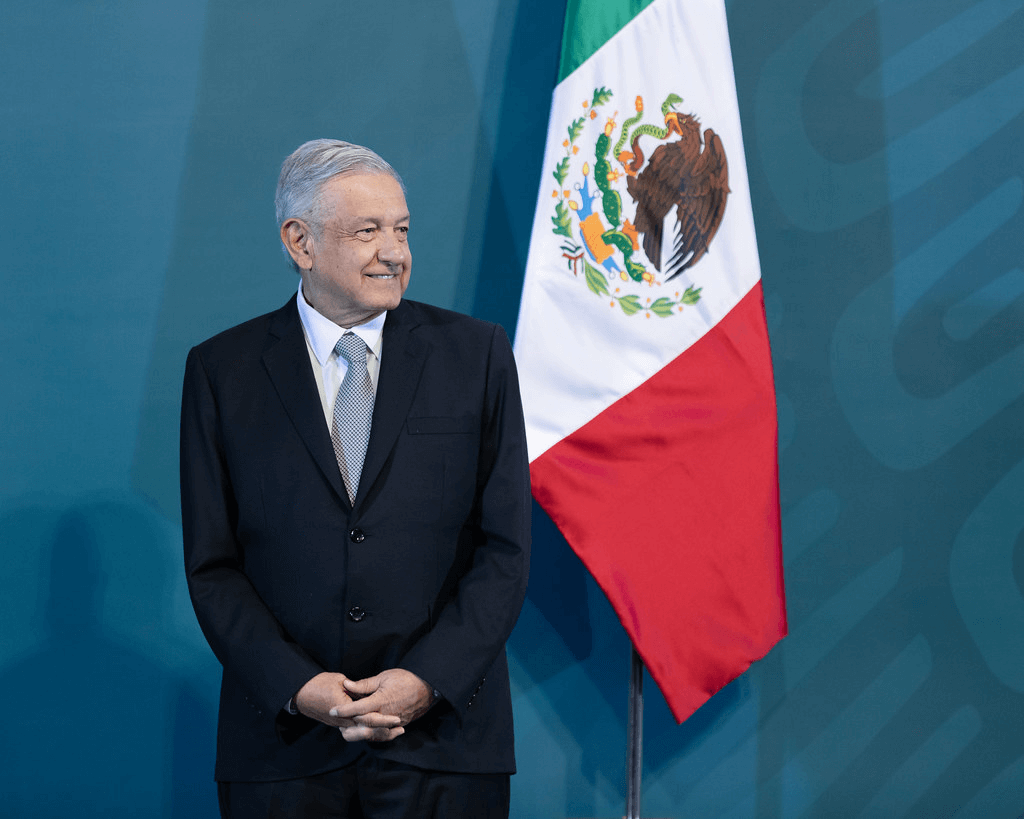The escalating disagreement between Mexico and its two northern partners, the United States and Canada, over the country’s corn ban is increasingly unlikely to be resolved any time soon.
At the heart of the dispute: genetically modified crops. Mexico has pledged that by next year, it will fully phase out the use of genetically modified corn, as well as the herbicide glyphosate. Upwards of 90 percent of corn grown in Canada and the US is genetically modified. Almost all of it is used as animal feed.
The Mexican president has legitimate trade concerns. Government-subsidized and lower-cost imported US grain has flooded the Mexican market and put many farmers out of business.
But central to its objection is a rejection of science. Like many anti-GMO movements in the developing world, in Mexico followed the lead of advocacy NGOs in the US and Europe by citing legitimate concerns from historically forgotten indigenous farmer groups. But they base their complaints on deceptive science, claiming that GM corn and the weedkiller glyphosate pose health threats to farmers ad consumers.
Consequently, Mexico’s biotechnology regulatory policy environment has become rejectionist under the current administration. There have been no planting permit approvals of GM products for food and feed since May 2018, not even for research and development. The Secretary of Agriculture has not approved any GM planting applications since 2019. Existing authorizations for biotech corn have been revoked and new authorizations prohibited, as the government prepares for a complete phase-out by January 31, 2024.
The decree could permanently cripple science innovation in Mexico’s agricultural sector. Currently, no research centers are conducting any GM plant R&D, and won’t within the next five years, resulting in a loss to the Mexican economy of millions of dollars.
How did Mexico switch from being a Latin innovator in biotech to embracing anti-GM conspiracy theories?
In 2018 when the current administration took office, several anti-GM politicians joined his government promoting restrictions on biotech-engineered products. Soon after, the government began denying new environmental releases of the only GM crop cultivated in Mexico, cotton. In 2020 the anti-biotechnology notched its biggest success when Lopez-Obrador released his decree banning GM corn and the herbicide glyphosate. He cited a radical interpretation of the European-backed precautionary principle which is based on literature from scientific studies that had been refuted and highly questioned by the international scientific community that views biotechnology innovation as reckless and potentially dangerous.

Mexican farmer associations sharply criticized this unilateral decision and started legal actions, claiming it jeopardized their way of life as the country’s agro-food chain depends on GM corn imports from the United States and Canada.
The decision also significantly hit US farmers as they are the main source of corn supply to Mexico, endangering animals who depend on GM corn. As the New York Times reported, “Mexico bought more than 20 million metric tons of corn from the United States in the 2021-22 marketing year.”
The US Government under the North America Trade Agreement asked Mexican Government for clarification. Days later, the Canadian government began mulling bringing a formal trade dispute against Mexico.
In response to foreign pressure and hoping to avoid a full-scale trade war, the Mexican administration published a new decree that soften restrictions on GM corn, allowing GM corn imports for animal feed and industrial use, but it kept its restrictions on corn destined for human consumption Mexico’s goal is to increase the country’s crop production by 30-40%, is sufficient to replace imports.
As expected, this decision was not well received by the US or Canada. In response, the Mexican government launched a series of webinars where it presented what is claims are the scientific, cultural, economic, and legal justification for imposing a GM corn and glyphosate ban.
Mexican authorities are now positioning themselves as strong promoters of agroecology. It claims only by following this new path can Mexico reach self-sufficiency. Sizable public resources are now dedicated to promoting agroecology, and official state-influenced media channels are aggressively promoting disinformation about the alleged dangers of GM crops. The government is also subsidizing smaller producers to motivate them to adopt agroecological systems. this year the government expects to spend almost five-hundred million USD, according to data from the Secretary of Agriculture.
Ideology vs facts
The anti-GMO narrative has flourished by appealing to a Mexican identity strongly linked to the deep cultural significance of corn, which originated in Mexico. Conservationists, indigenous communities, and traditional farmers have grown a narrative that protecting traditional corn and seeds preserve the country’s heritage. In the face of these ideological narratives, promoting a data-based science perspective has proved to be a losing hand.
Mexico has long been subject to historically questionable cultural appeals. In 2016, the Mayan community led the legal action to ban GM soybean from their territories, claiming that the crop adversely effects bee populations in the region. There is no science evidence linking bee health to GM crops, but the social pressures and lobbying by organic honey producers were enough to ban and revoked GM soybean permits.
A coalition of local anti-GM NGOs, small farmers, indigenous representatives, and anti-biotech scientists are trying to push back against farmer associations and foreign governments that are against the bans remain convinced that ideology and activism, rather than science, are shaping the discussion over GM crops in Mexico.
So far, the Mexican government’s attacks on GM crops are based mostly on the infamous and retracted study by French anti-biotech scientist and activist Gilles-Éric Séralini. The result is that its science-rejectionist policies will result in long-term economic losses and a questionable reliance on low-productivity organic and agroecological farming.
Luis Ventura is a biologist with expertise in biotechnology, biosafety and science communication, born and raised in a small town near Mexico City. He is a Plant Genetic Resources International Platform Fellow at the Swedish University of Agricultural Sciences. Follow him on Twitter @luisventura































